Phillip Hughes tragedy should have prompted change - Agnew
- Published
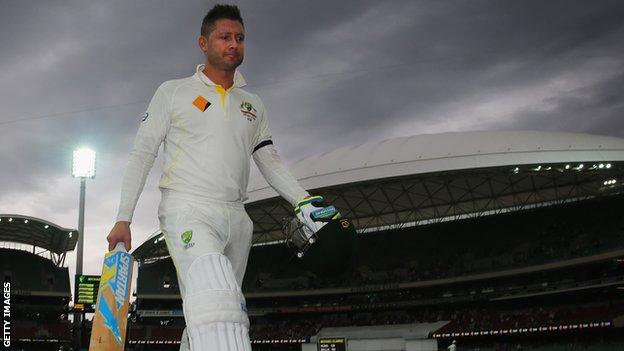
"I have absolute admiration for Michael Clarke's powerful and emotional speech at Phillip Hughes' funeral."
In an interview with the Radio Times this week, Jonathan Agnew was quoted as saying the sledging between India and Australia suggests cricket has not yet learned from the death of batsman Phillip Hughes.
I wish to clear up any misunderstanding from my recent comments regarding sledging.
These were picked up and presented out of context from an interview I gave to a non-sports magazine. I accept that, presented as such, they look clumsy and in need of explanation.
The first thing I need to make clear is that my remarks are not critical of Michael Clarke, Australia's captain. In fact, I have absolute admiration for his powerful and emotional speech at Phillip Hughes' funeral, both in its presentation and content.
When Hughes was struck and killed by a cricket ball, the shock was felt by everyone who plays the game.
Even the weekly village cricketer found himself haunted by the same question: how could a young, fit, apparently well-protected batsman at the top of his game die in such a way? It simply should not happen.
A debate began about how cricket might change as a result of this tragedy: should bouncers be outlawed? What should happen when a batsman is hit on the head? How might a bowler react? And what about the crowd?
It seemed to me that to legislate against bouncers and aggression would be entirely wrong because it is all part and parcel of the game. But what about the atmosphere in which cricketers play the game? How might that change?
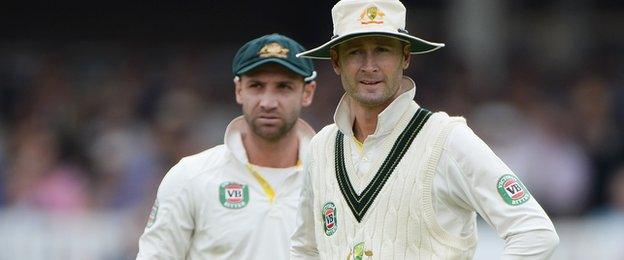
Michael Clarke paid tribute to "little brother" Phillip Hughes at his funeral in December
Having played professional cricket for 13 years, I know that "C'mon, knock his head off!" is one of the most common things you will hear a fielder shout to a bowler on the cricket field. But now we know what harm a cricket ball can actually cause, is this really appropriate? Was it ever, in fact?
In the first Test of the most recent Ashes, Clarke was responsible for one of the most graphic and subsequently replayed pieces of recent sledging.
Having set the field, he then switched his attention to England's James Anderson - a lower-order batsman who was preparing to face the fastest bowler in the world, Mitchell Johnson. Clarke used an obscenity while warning Anderson to expect a broken arm.
Anderson's watery smile was telling. He had heard it all before. He had almost certainly said something like it himself. Although shocking, that new level of sledging is now so much part of the game that the umpires did nothing to intervene.
Would Clarke feel as comfortable saying that now as he did then? I wonder what the eavesdropping television commentators might say now. Is this not the time, therefore, for the game to take a long, hard look at itself?
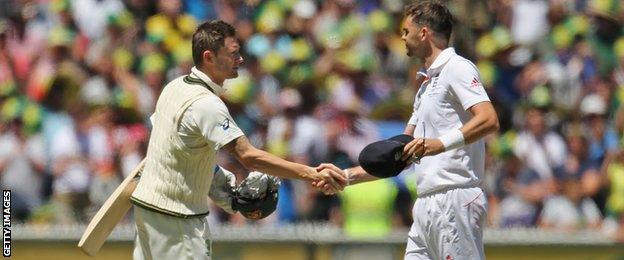
Clarke was fined 20% of his match fee for using an obscenity while warning Anderson to expect a broken arm
In his outstanding tribute to Hughes, Clarke talked about the spirit of cricket that binds us all together. He spoke of Hughes' spirit being a custodian of the sport we love. "We must listen to it, we must cherish it, we must learn from it," he said.
Clarke appeared to be acknowledging that cricket might be played differently from now on: more respectfully, at least. That was how it was interpreted by those who wish to see an end to on-field abuse.
Hence my comments regarding the recent Test series between Australia and India. The verbal abuse, the posturing, the unnecessary gesturing appeared to be every bit as bad as ever. I am not interested in who started it or who was responsible (Clarke missed most of the series so he is hardly to blame). The fact is that nothing changed, and that is disappointing.
The ICC plans to bring in new, strict anti-sledging regulations in time for the World Cup next month which, I am assured, will have the same zero-tolerance as the recent purge on throwing. We shall see. But it is a shame that the players have not felt prompted to act for themselves.
The Analyst Simon Hughes on cricket safety
- Published14 January 2015
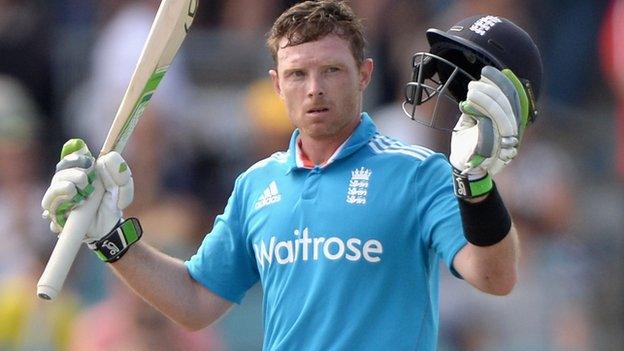
- Published13 January 2015
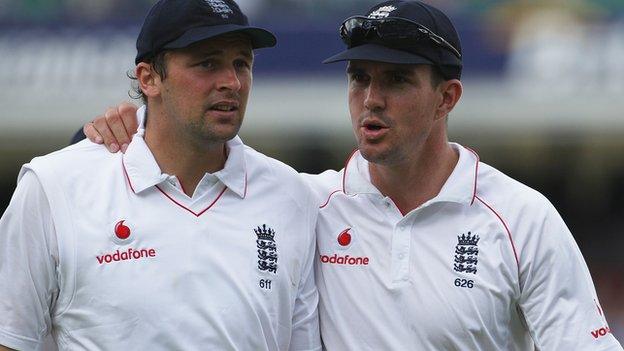
- Published14 January 2015

- Published15 May 2018
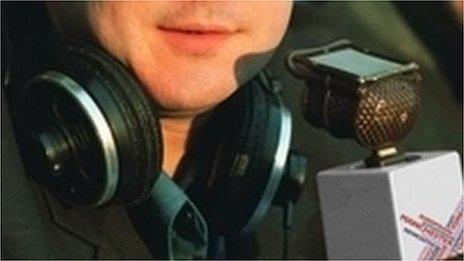
- Published18 October 2019
